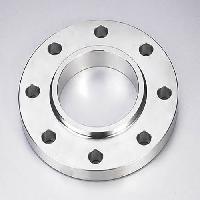
Alloy Rings

Adapters

alloy bushes

ascast tubes

automobile flange

bowl shell

centrifugal casting products

crusher cone
We offer crusher cone. We are a company which is engaged in the supply of crusher cone.
...more
high alloy tubes
We offer high alloy tubes. We have gained expertise in retailing and wholesaling a wide range of high alloy tubes.
...more
hydraulic float seals
we offer hydraulic float seals. we provide a wide range of hydraulic float seals.
...more
investment casting products
We offer Investment Casting Products. Our company presents an assortment of investment casting products that are available at competitive prices
...more
Metal Gaskets
We offer metal gaskets. Backed by experienced and expert team we are offering range of metal gaskets
...more
Sand Casting Products
We offer sand casting products. Backed by a team of highly experienced professionals, we are involved in providing a wide range of sand casting products.
...more
Stainless Steel Products
We offer stainless steel products. Over the years of experience in the industry, we have been able to provide the customers with a commendable range of stainless steel products
...more
water treatment ports
we are prominent suppliers of water treatment ports with affordable prices.
...more
hand woven ethnic floor coverings
We offer Hand Woven Ethnic Floor Coverings. We are very eminent dealer in the field of supplying of hand woven ethnic floor coverings
...more
Investment Casting
We are providing Investment Casting. Investment casting is an industrial process based on and also called lost-wax casting, one of the oldest known metal-forming techniques. From 5,000 years ago, when beeswax formed the pattern, to today’s high-technology waxes, refractory materials and specialist alloys, the castings allow the production of components with accuracy, repeatability, versatility and integrity in a variety of metals and high-performance alloys. Lost-foam casting is a modern form of investment casting that eliminates certain steps in the process. There are a variety of materials that can be used for the investment casting process, including stainless steel alloys, brass, aluminum, and carbon steel. The material is poured into a ceramic cavity designed to create an exact duplicate of the desired part. Investment casting can reduce the need for secondary machining by providing castings to shape.
...more
Centrifugal Casting
Centrifugal casting or rotocasting is a casting technique that is typically used to cast thin-walled cylinders. It is noted for the high quality of the results attainable, particularly for precise control of their metallurgy and crystal structure. Unlike most other casting techniques, centrifugal casting is chiefly used to manufacture stock materials in standard sizes for further machining, rather than shaped parts tailored to a particular end-use. In centrifugal casting, a permanent mold is rotated continuously about its axis at high speeds (300 to 3000 rpm) as the molten metal is poured. The molten metal is centrifugally thrown towards the inside mold wall, where it solidifies after cooling. The casting is usually a fine-grained casting with a very fine-grained outer diameter, owing to chilling against the mould surface. Impurities and inclusions are thrown to the surface of the inside diameter, which can be machined away. Casting machines may be either horizontal or vertical-axis. Horizontal axis machines are preferred for long, thin cylinders, vertical machines for rings. Most castings are solidified from the outside first. This may be used to encourage directional solidification of the casting, and thus give useful metallurgical properties to it. Often the inner and outer layers are discarded and only the intermediary columnar zone is used.
...more
Machine Shop Facility
Often times a metal part that is cast will require finish machining of certain details on the casting. Some methods of metal casting such as investment casting and die casting are more accurate than other methods, but typically there are certain tolerances or geometry that can not be cast and must be machined. It is common for a casting foundry to apply a machining allowance to their cast parts to allow for finish machining to final size. Machining of castings often requires different clamping or locating techniques to minimise errors from variations in the castings themselves. We, Casting machining specialists understand this and create location strategies to ensure consistent results.
...moreBe first to Rate
Rate ThisOpening Hours